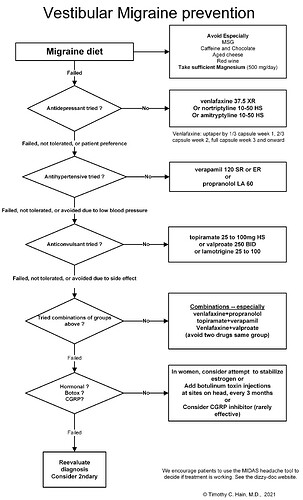Hello everybody,
You may be surprised that I’m writing rather than my son who suffers from these awful conditions, but using a computer is currently impossible for him. I am sorry I didn’t find this excellent forum before, but I’m writing to see if I can find any suggestions or hints to help him. He has constant, continuous sensations of seeing the surroundings move and feeling himself spinning inwardly. Does anyone here experience constant low-grade vertigo in this manner, all the time?
So, I shall try to be brief.
It began shortly after he was diagnosed with ME/CFS in 1993 while at university. In 1997, unable to sit up or talk, he spent 10 weeks in the National Hospital of Neurology. London. The dizziness emerged after he was prescribed venlafaxine, but disappeared on stopping the medicine. Reappearing few months later for no reason, various weird movement symptoms have been constant ever since. By 2003, he was making a 50% recovery from ME when he went down with glandular fever and immediately developed a strange headache which affected the movement symptoms enormously, and he became much more ill with ME. Over time he learned to ignore them especially as he is a musician, playing jazz guitar but in the last three months they have become so severe, he can’t function at all.
Incidentally, for those who haven’t come across ME, it’s now recognised as a complex neurological illness affecting many systems of the body, similarly to Long Covid. It is not simply fatigue!
Like so many of you, he’s had innumerable consultations originally with psychiatrists for ME –dreadful– then with neurologists, another stay at Queen Square for the vertigo symptoms, unfortunately, no help. Lately, a neuro-otologist, then last year, on developing tingling in his arms et cetera and severe attacks of spinning lasting 30 minutes or more, he was diagnosed with vestibular migraine and PPPD. For six months, Flunarizine controlled these attacks but not the feeling that he was spinning or that the room, objects, the chair he’s sitting on is moving backwards and forwards.
(On the way, he found the work of Joey Reminyi, the Australian vestibular audiologist, whose books and online material might help to some of you but the limitations of ME stopped him benefiting by her theory that neuroplasticity can affect change in tinnitus and balance disorders. I’ve absolutely no financial interest in this!)
So to the point of my post: venlafaxine caused the symptoms, though I see some people have them initially, but they were prescribed for ME/CFS, and have benefited people with vertigo. Last year the neurologist prescribed gabapentin and again in January, this year- unfortunately, it knocks him out completely, perhaps because of the ME/CFS. He’s taken amitriptyline for years…
Do you know of any other medicine that might help?
I must add that having continuous vertigo is not a known symptom of ME/CFS but I would like to be in contact with anyone who has both these conditions, which incidentally most GPs are unable to treat. I look forward to hearing from you.
